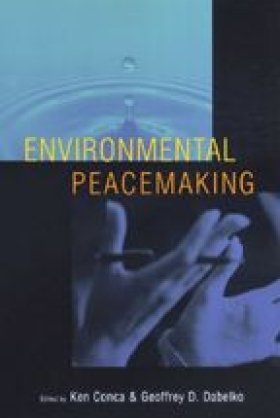This article seeks to systematize the study of environmental cooperation and to define its scope more clearly, by identifying the conditions under which environmental cooperation best facilitates conflict transformation and peacebuilding, and which forms of negotiation or stakeholder participation have been particularly successful. I reviewed and evaluated past experiences experiences to pinpoint the lessons learned, as well as shortcomings, and I highlight areas for action and recommendations for development agencies. I analyzed not only the existing literature but also an exemplary selection of studies on water cooperation and cooperation in nature conservation in southern Africa, the Middle East, Latin America, and Central Asia.
About the Author
The Environmental Change and Security Program (ECSP) explores the connections between environmental change, health, and population dynamics and their links to conflict, human insecurity, and foreign policy. Read more

Environmental Peacemaking

Environment, Conflict, and Cooperation
On Tuesday, April 3, 2007 at 3:30 – 5:30 ET

Takeaways from the 2023 Southern Voices Network for Peacebuilding Conference
By Oge Onubogu on September 22, 2023

Lustrating Judges Is the Key to Post-Putin Transitional Justice
By Igor Slabykh on September 22, 2023

Smart Take | Five US Citizens are Free After Prisoner Swap with Iran
2:06

Inequity in the Face of Unconstitutionality: The AU's Punitive Discrepancy
By Stephanie Lizzo on September 13, 2023

The Implication of Russia’s Invasion for Ukraine’s Foreign Policy
By Iliya Kusa on September 12, 2023

Climate Adaptation at COP28: Eyes on the Middle East

Cathy Ashton: Dealing with Putin and Lavrov, Kosovo–Serbia, and 'radical humility'

Russia’s Unprecedented War Budget Explained
By Boris Grozovski on September 7, 2023

Xi Jinping’s Pending Absence at the G20
By Robert Daly on September 6, 2023